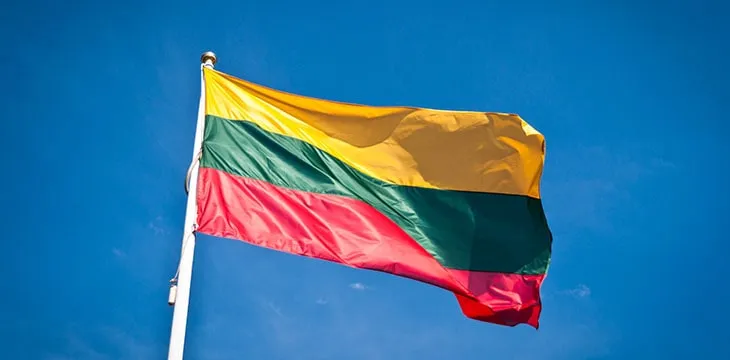|
Getting your Trinity Audio player ready...
|
Lithuania is poised to become the latest European country to tighten its digital currency regulations to prevent Russia from evading sanctions through the market.
The Lithuanian Ministry of Finance (MoF) announced this week that the government has approved amendments proposed in its draft law, the “Law on the Prevention of Money Laundering and Terrorist Financing.” The proposals in the law include a tightening of the guidelines for user identification and a ban on anonymous accounts. It also places new obligations on digital currency exchanges. This includes having a nominal capital amount of no less than 125,000 euros.
Exchanges would also need to register as corporate bodies in Lithuania and have top executives in the country. According to the Ministry of Finance, these amendments will help increase the transparency of the digital assets market.
Finance Minister Gintarė Skaistė said the amendments are also in line with regulations being prepared by the European Union (EU). She added that they would also help make the market sustainable.
“The proposed changes will ensure greater transparency and higher quality standards in the sector, contributing to the sustainable integration of the cryptographic asset segment into the country’s wider Fintech ecosystem,” Skaistė said.
“The relevance of the proposals is strengthened by today’s geopolitical environment—we must ensure that no attempt is made to circumvent Western sanctions on Russia by using cryptographic assets,” she added.
Lithuania is seeing a surge in digital assets adoption
The draft law was prepared in conjunction with the Bank of Lithuania (LB), the Financial Crime Investigation Service (FNTT), the Ministry of the Interior, and the Money Laundering Prevention Competence Center.
It still needs to go through the Seimas, Lithuania’s legislative arm, before the amendments are passed into law. The Ministry of Finance hopes to see several amendments enter into force this year and early 2023.
Lithuania’s current digital currency regulations have been in place since 2019, when the country began to require transactions worth over 1,000 euros to be reported by exchanges for AML/CTF purposes.
At present, the 2.8-million-person nation currently has over 250 digital assets firms operating in it. According to the Ministry of Finance, the number of companies began to increase in 2021 after Estonia tightened its registration requirements for digital assets firms.
Meanwhile, the country’s government has also been engaged in exploring use cases for blockchain technology and digital assets. As reported by Reuters, the Bank of Lithuania became the first country in the world to launch a state-backed digital collector coin back in 2020.
Watch: The BSV Global Blockchain Convention, The Future of Digital Asset Exchanges & Investment
https://www.youtube.com/watch?v=RzJsCRb6zt8&t=7800s

 07-09-2025
07-09-2025 





